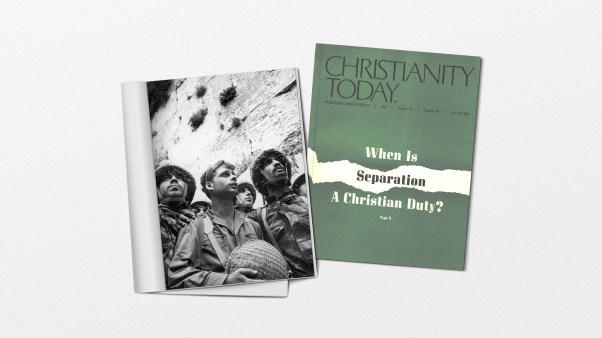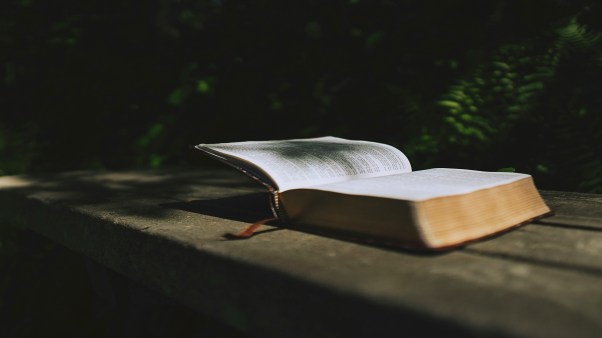Christians love to sing about creation. Hymns like “How Great Thou Art” describe the beauty of creation that moves the church to sing, “I see the stars, I hear the rolling thunder / Thy power throughout the universe displayed.”
Nature can also be a source of confusion or anxiety for believers as they observe eclipses and earthquakes and try to discern God’s role or intent in their unfolding. And as climate change more visibly impacts humans, the natural world can seem increasingly hostile, even as it remains a source of inspiration and joy for the Christian.
Where is God’s hand at work? And how should we respond to mysteries and chaos in our prayers and worship?
British scholar Mark Porter believes the Christian imagination can hold a complex view of creation—as can music. His research looks at the intersection of music, faith, and climate change, showing ways to engage nature beyond using it as a signpost of God’s glory, contending also with its beauty, chaos, fragility, and brutality.
“There’s not just one thing that nature imagery does,” said Porter. “It can do something besides inspire an individual to look to God in worship.”
Porter’s forthcoming book For the Warming of the Earth: Music, Faith, and Ecological Crisis describes how faith communities and organizations are responding to climate change and environmental crises with music, such as Resound Worship’s Doxecology album, the activism of groups like Christian Climate Action (CCA), and Catholic song festivals centered on Pope Francis’ landmark encyclical, Laudato Si’.
It’s not a how-to book for worship leaders looking to more explicitly address creation care or environmental justice, but the resource offers a window into a variety of Christian practices and postures around worship and creation.
Classic songs like “For the Beauty of the Earth” and “This Is My Father’s World” and more recent offerings like “God of Wonders” turn observations of aesthetic and sensory wonder into outpourings of praise. Their verses describe ornate details and panoramas, punctuated by laudatory refrains like “Christ, our Lord, to thee we raise / This our hymn of grateful praise” and “God of wonders beyond our galaxy / You are holy, holy.”
Porter, a senior lecturer at the University of Erfurt in Germany, pointed out that the popular hymn “When Peace, Like a River (It Is Well with My Soul)” offers a more multifaceted acknowledgement of humankind’s relationship with nature.
“You have ‘when peace, like a river’ and ‘sorrows like sea billows,’” he said. “Nature is there as both potentially comforting and potentially threatening.”
The mystery of nature—its majesty and violence—has always been a fount of creative inspiration for Christian artists, but most popular hymns and worship songs put nature imagery to use in one particular way: as a way to be moved to praise.
“It’s just me and God and nothing else,” said Porter. “That’s a fairly recent development. And I think there are ways to go back into Protestant thinking and rescue some things.”
The charismatic influence in these songs, though, also brings a willingness to look for God’s hand in everything. “From that perspective, God can use anything to speak to us, a butterfly or a bird,” he said.
Climate change is still a contentious issue among American Christians, with roughly half of white evangelicals saying that the phenomenon is most likely caused by natural processes—across all Americans, only 28 percent hold that view.
But while many evangelicals may be skeptical of projections showing escalating climate change–related deaths and the human contribution to environmental change, they are more likely than other Americans to believe that God causes natural disasters.
Most Christians reject animism—attributing divine power or “ensouledness” to creation—but still look for the hand of God in natural events. So while the issue of climate change may cause division, Christians broadly pay attention to changes in the environment, whether watching for signs of apocalypse or human-caused damage, and they find these changes meaningful.
They also take notice when natural disasters cause human suffering, which, in Porter’s view, may be the thing that starts to move more Christians’ opinion on the issue. He’s seen churches on both sides of the pond grow more comfortable with the language of environmental and social justice than they were 10 and 20 years ago.
“There was a lot of suspicion in the church in the UK about engaging with social justice,” said Porter. “It was widely thought, That’s something that liberal churches do.”
Recent books like Kyle Meyaard-Schaap’s Following Jesus in a Warming World and scientist Katharine Hayhoe’s Saving Us: A Climate Scientist’s Case for Hope and Healing in a Divided World offer Christian perspectives on living faithfully in light of climate change, but the issue remains on the fringe.
Porter pointed out that the musical initiatives and projects he writes about in the book are still very much on the periphery of their denominations and traditions, but they may be part of bringing climate conversations into more evangelical churches.
“The practices in this volume do not all rest on a sense of hope,” Porter writes in the book. “Some do not orient themselves to the future, some center on loss, and others are deliberately cautious about voicing a hope they are not sure they can really believe in. Some, in other words, might be suitable accompaniments even in a world that remains irretrievably broken.”
Some Christians criticize the nihilism of climate change advocates who talk about irreversible damage to the earth. But even if they reject nihilism as counter to the gospel, Christians may feel stuck or lost when it comes to engaging in climate justice activism. Hayhoe argues that this stuckness, not disinterest, is the stumbling block for most people.
“The biggest problem is not the people who aren’t on board; the biggest problem is the people who don’t know what to do,” Hayhoe said in an interview with The New York Times. “Connect the dots to your heart so you don’t see climate change as a separate bucket but rather as a hole in the bucket of every other thing that you already care about in your life.”
For the musicians in Porter’s book, singing, performance art, composition, and gathering in nature are all means of connecting faith, community, and creation.
Hopefulness isn’t a throughline in Porter’s book, but it is a common theme among many he spoke with.
“A lot of people involved in climate change activism are struggling to hold on to hope and it’s something that people of faith are able to offer, I think,” said Barbara Doye, one of Porter’s interviewees. Doye is an activist and musician who adapts hymns and folk songs as part of the Forest Church movement.
The interviews and vignettes in Porter’s book aren’t meant to be prescriptive—few of us will be convicted to engage in performance art or start a Forest Church—but it can help Christians see music as a way into climate work.
For those unsure where to begin, Porter points to the simplicity of the first chapter of Genesis: “God said it was good.”









